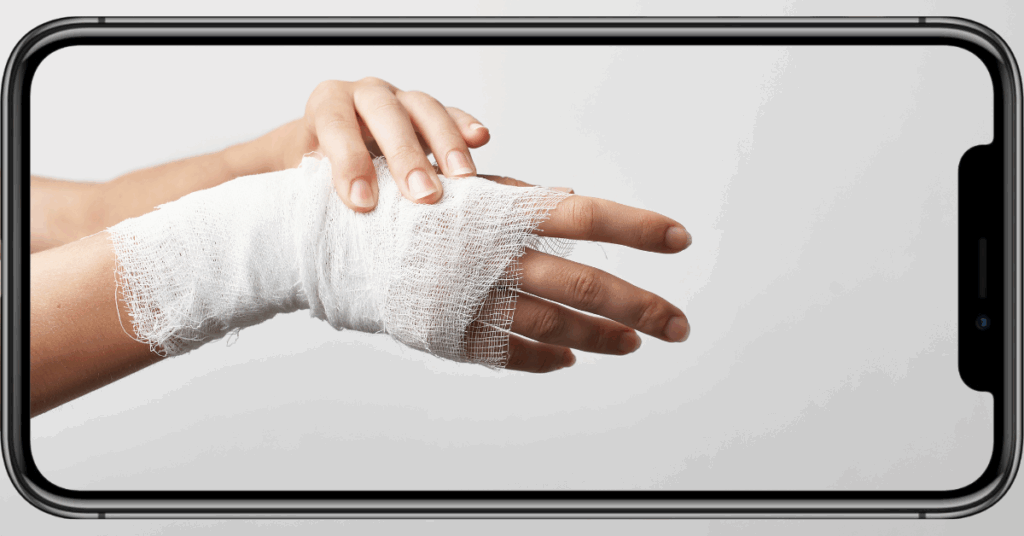Why You Shouldn’t Post About Your Injury on Social Media
By Dustin Fox – DFox Law
We live in a world where people post everything—breakfasts, workouts, flight selfies, and even emergency room bracelets. But if you’re involved in a personal injury claim, your social media could become the most substantial evidence against you.
Let me be very clear:
If it’s on the internet, it lives forever.
Even if you delete it. Even if your profile is “private.”
The truth is, insurance companies are not casual observers. They are sophisticated adversaries. They monitor social media activity—yours, your friends’, your tagged locations—and use anything they can to undermine your injury claim in front of adjusters, mediators, and juries.
A Personal Example That Still Stings
A few years ago, my wife was the client.
She’d suffered a painful disc herniation at L5-S1 from a car crash. As Thanksgiving approached, she posted something simple on Facebook:
“Headed to see family for the holidays.”
At mediation, the insurance company pulled that post and said:
“She flew across the country. She must be fine.”
What they didn’t see—and what I saw—was the pain on her face the entire time. She shifted every 30 minutes. She stood in the aisle in agony. She cried at the gate from the pressure on her spine. But the only thing the defense cared about?
A smiling post and a plane emoji.
Real-World Case: A Gym Selfie Gone Wrong
In another case out of California, a plaintiff claimed debilitating back pain after a rear-end collision. Months later, they posted a gym selfie—no weights, just a mirror pic with the caption:
“Trying to get back into it .”
The insurance defense pounced. They framed it as proof of physical recovery and used it in court to dispute the severity of the injury.
The plaintiff tried to explain: no real workout happened, they left shortly after. But juries aren’t always allowed to hear the full story. They just see the post.

What You Post Can Be Used Against You
Insurance companies employ third-party investigators and data-scraping software to collect this information. Once you file a claim, your public presence becomes part of their strategy.
Here’s what they’re looking for:
- Photos of activities – Even attending a family barbecue can be spun to say you’re not truly injured.
- Check-ins and location tags – These are digital breadcrumbs used to place you at events or locations inconsistent with your claimed injuries.
- Comments or DMs – Yes, even private messages can be discoverable in litigation.
- Posts from friends/family – If you’re tagged, you’re exposed. You don’t need to post something yourself to be at risk.
And here’s the harsh truth:
You may not get to explain the context—only the image or quote gets shown.
The Numbers Don’t Lie
A study by the American Academy of Matrimonial Lawyers found that 81% of attorneys use evidence from social media in their cases—and that was back in 2010. It’s only grown more common since then.
AAML Study – Social Networking Evidence
According to the Pew Research Center, 72% of U.S. adults use at least one social media platform, with Facebook and Instagram being the most popular.
Pew Research – Social Media Fact Sheet
What Should You Do?
Here’s my honest advice as an attorney who’s been in the courtroom and the deposition room:
- Avoid posting altogether. Go quiet during your case. Silence cannot be misinterpreted.
- Ask friends and family not to tag or mention you. Even innocent tags can be twisted.
- Never post about your injury, your accident, or your recovery. That includes comments like “I’m feeling a little better” or “At least I can walk today.”
- Talk to your attorney before posting anything—even if it seems harmless.
Final Advice from a Lawyer Who’s Seen It Firsthand
At DFox Law, we protect our clients not just in court—but from avoidable mistakes.
Social media is public. And it is permanent. Even private messages can be subpoenaed. Even deleted content can be recovered.
In the eyes of an insurance company or defense attorney, your pain isn’t real unless you prove it—and your social media can make that proof vanish.
So please, if you’re injured:
Think before you post.
Better yet—don’t post at all.
Because while you’re trying to heal, they’re quietly building a case—using your own life, your own words, and your own posts against you.
All we do is fight for injured victims. And we do not accept defeat.
(512) 996-6369
help@dfoxlaw.com
Address
206 W. Main Street #108, Ste B, Round Rock
TX 78664
